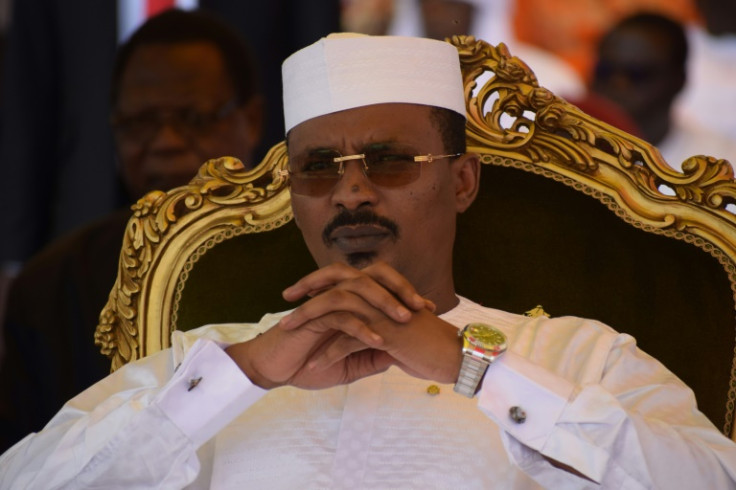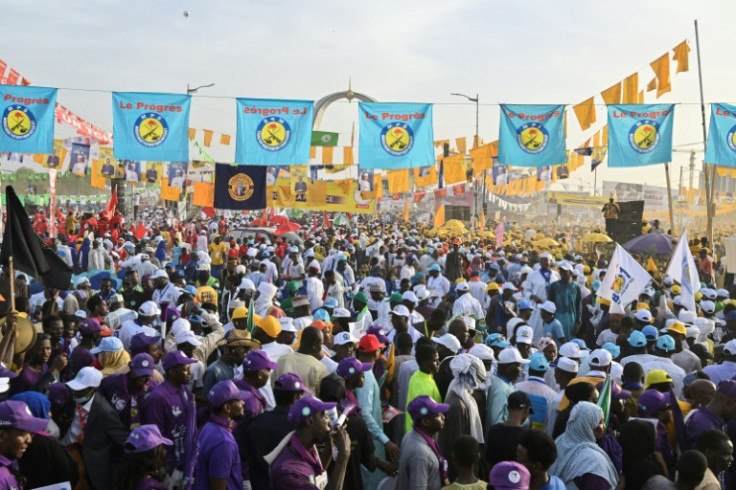
Chadians vote for a president on Monday in an election purportedly aimed at ending military rule but dismissed by opponents of junta leader Mahamat Idriss Deby as a fix following violent repression.
Voters will choose whether to extend decades of Deby family rule in one of the world's poorest countries, a crucial territory in the fight against jihadism across the Sahel desert region.
They have the chance to opt instead for Deby's own prime minister, Succes Masra, denounced as a stooge by critics in the absence of any other serious challengers.
At his closing election rally on Friday, Deby promised a "knockout in the first round".
Masra also vowed to win without a run-off, telling supporters: "For the first time, Chad will be yours, Chadians."
International human rights groups have warned the election will not be free or fair as Deby's main rival has been killed and others banned from standing.
Generals named Deby transition leader in 2021 when his father, longtime president Idriss Deby Itno, was killed in a gun battle with rebels after 30 years in power.
Known by his initials as MIDI, and "the Man in Dark Glasses", Mahamat promised an 18-month transition to democracy, but later extended it by two years.
Opposition figures have since fled, been silenced or joined forces with Deby, while the junta has eliminated any attempts by civil society to campaign against it.
On October 20, 2022, the army and police opened fire on demonstrators protesting the transition extension, including members of Masra's party, the Transformers.
At least 300 young people died according to international NGOs, or about 50 according to the regime.
Deby's cousin and chief election rival Yaya Dillo Djerou was shot point-blank in the head in an army assault on February 28, according to his party.
Masra was among the opponents driven out of the country but later returned and was named prime minister in January.
The eight other candidates, either little known or considered not hostile to the regime, are not expected to win many votes.
The International Federation for Human Rights (FIDH) warned on Friday that the election appeared "neither credible, free nor democratic".
It noted "increasing human rights violations" in the country, including Dillo's killing.
The International Crisis Group (ICG) warned that "a number of problems in the run-up to the balloting cast doubt on its credibility".
These include measures that allow officials to publish only regional tallies of votes rather than posting the results at individual polling stations -- making it impossible for observers to verify the vote-count.
ICG also cited the decision by Chad's Constitutional Council to exclude 10 rival candidates from the vote in Deby strongholds.
As for Masra, it said: "A significant proportion of his constituency now considers him to have become a stooge of those in power" -- though some analysts have said Masra may be genuinely aiming to become president.
ICG and FIDH called into question the independence of the council and another key electoral body, the National Election Management Agency (ANGE).
More than 8.2 voters are registered in the central African country, ranked by the United Nations as the fourth least-developed country in the world.
In a country where a third of the inhabitants are aged between 10 and 24, a new generation of voters will be casting ballots for the first time.
But Eric Bendiguim, a 25-year-old law student at N'Djamena University, said his first-ever vote would go to Masra.
"MIDI has already failed," he said.
"We don't have roads. We don't have electricity. We don't have good schools. We don't have enough to eat. It's pathetic."
Results are expected on May 21, with a possible second round on June 22.









